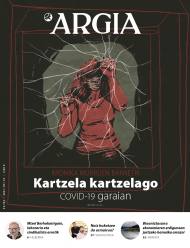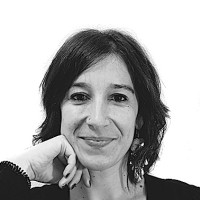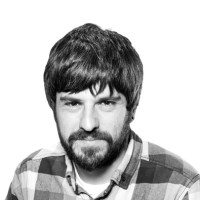"The feminist economy is an activity for a life that is worth living."
- Ione Fernandez Zabaleta (Irún, 1991) is a member of the Ara!Hil association, and together with the non-governmental organization Mundu Bat is one of the people responsible for the first Feminist Economic School entirely in Euskera. The fact that this learning process, with all the methodology and all the theory in Spanish, can be developed for the first time in Basque is, according to Irunés, “a lot of work but a great privilege”.
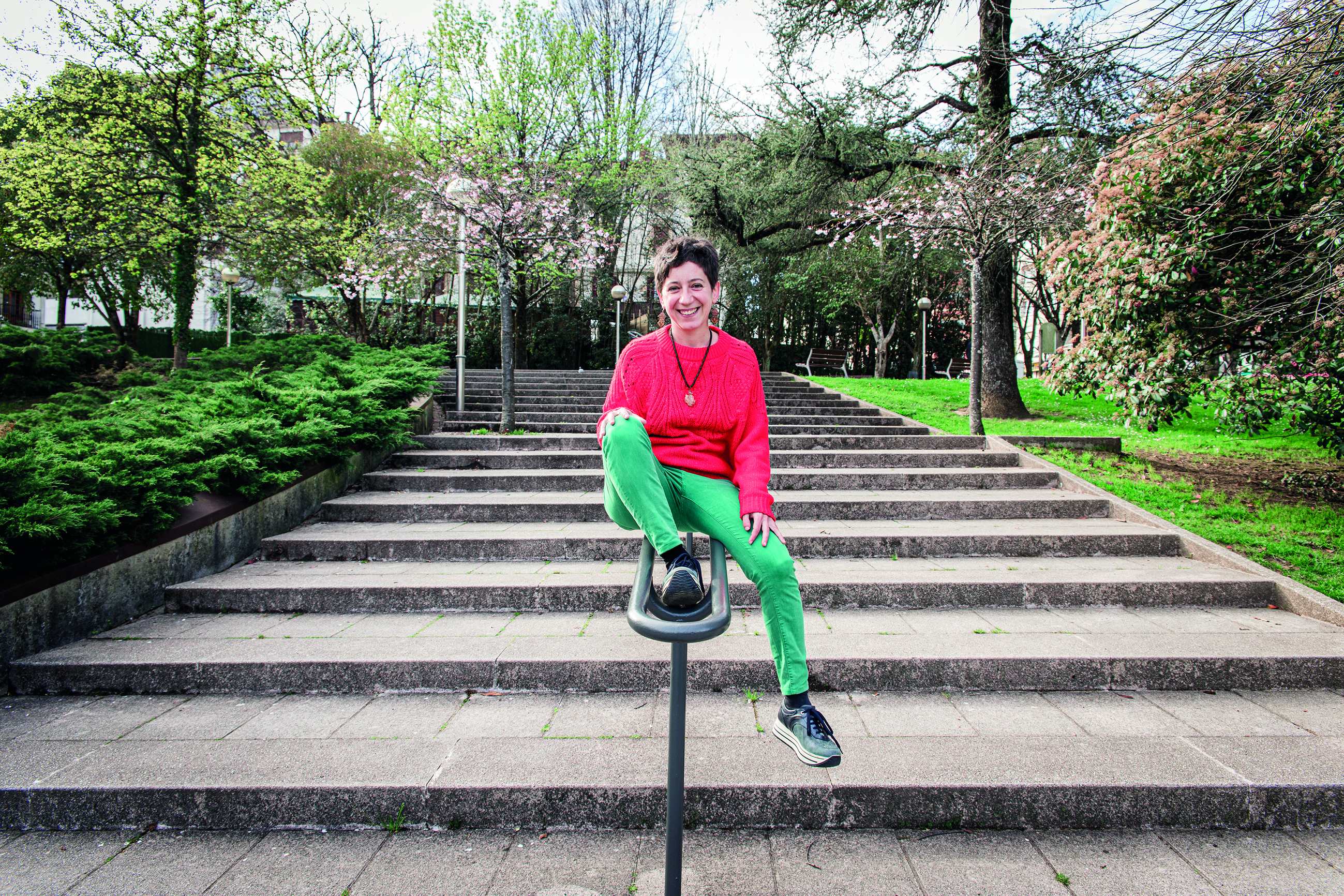
Where does the Feminist Economic School come from?The networks
of Central American women in resistance to contact with a dignified life that they created 2008.urtean in Abya Yala [this is how the countries of origin call the continent]. We call Euskal Herria the idea of the school teoria.Eskola or the small school that the non-governmental organization Mundu Bat brought, because it is a long and complex process. It's not something you can do with the fast consumption model. What is learned must be completed and internalized. Give it the time it takes. For nine months we got together twice a month for four hours. We start with our own personal experiences, and then we relate it to theory and to a very broad philosophy of life. We combine the characteristics of the economy and feminism.
Patriarchy, capitalism,
initiatives to generate income for women, the economic resistance created by women, rights, needs and privileges, desires, and decoloniality are the titles of the modules that we work in small schools. The feminist economy is committed to a dignified life in the face of the current system. Capitalism crushes life, kills and also implements policies that encourage death. The feminist economy is an activity for a life that is worth living. If we took the iceberg image, productivity would be at the top. To keep it, there are endless jobs that are neither recognized nor made visible, such as the one we so often mention today.
Many Feminist Economic Schools have been held in Euskal Herria so far, but you have managed to do so for the first time in Euskera.
Yes, we're working at Oiartzun because the local feminist assembly accepted the proposal, and there it couldn't be otherwise. For us, the only option was to do it in Basque. I work with my colleague Enara Iruretagoiena and as Euskaldun it is a great challenge for us. The whole theory is now in Spanish, because that's how they created the school and the theory, and we've taken on the translation.
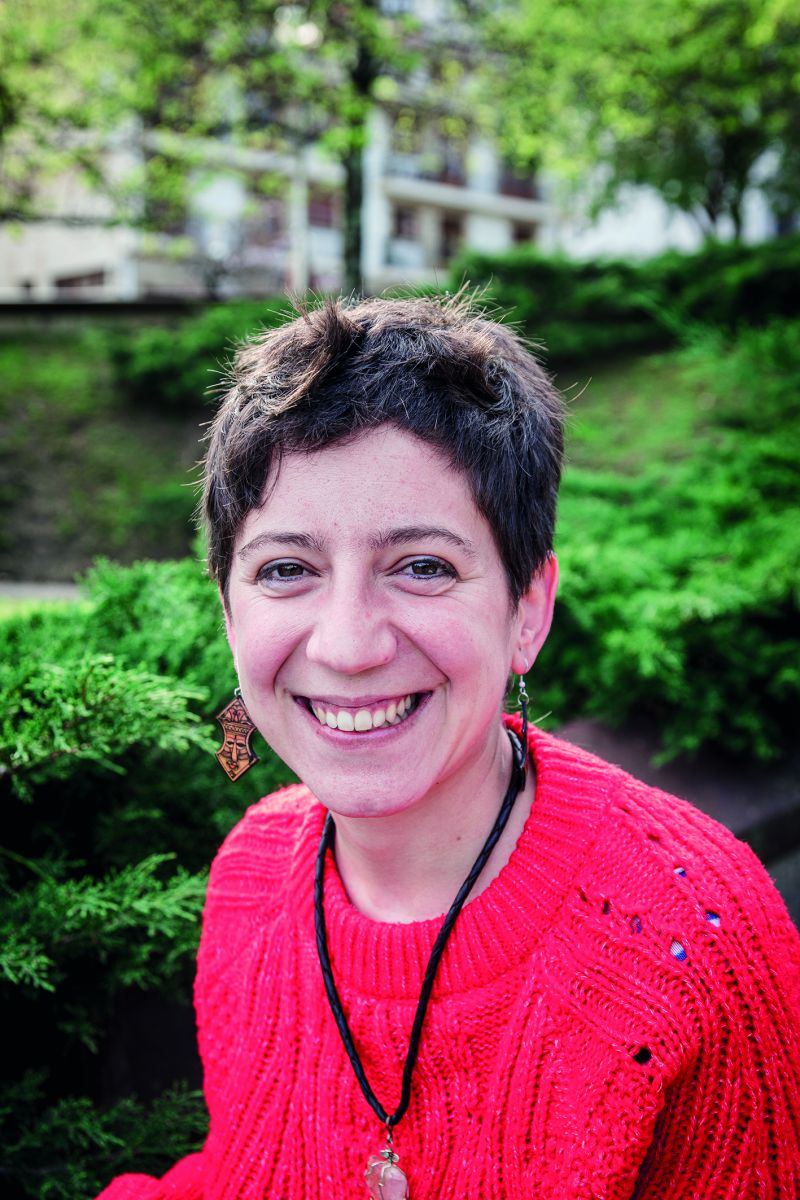
How do you experience the challenge of being able to offer the learning process in Basque and at the same time translate the whole theory?
Despite their great work, it is part of our identity. A!In the association of bodies we have chosen to develop all our dynamics in Euskera, as we are Basques and Basques who live in Euskal Herria. There is therefore, to a large extent, recognition that we owe to ourselves. And the feminist economy also picks up that: recognition, the emergence of what this patriarchal society and the capitalist system it promotes appeal at all times. Seeing and appreciating what is different, avoiding or working on crushing, understanding the economy beyond the currency… In the process we are conducting, the work that gives us the translation of the theory is quite invisible, but it is worth it. We are very comfortable.
Have you mentioned the guard, does the Feminist Economic School have any proposals in this regard?
I find it very difficult to give a correct and comprehensive answer, because what the Feminist Economic School is proposing is very broad. The process itself must be tackled at Community level and the monitoring must be defined among all members. Despite the fact that some areas related to care are evident, nowadays many others are totally invisible and even despised. I believe that the road is made by creating spaces for debate. In this time of epidemic, it is also more difficult to give this kind of controversy. We've been pushed to individualize everything, afraid to spread it. But the small school defends the collective. Although networks with positive and beautiful experiences have been created in the Basque Country, they are a minority. These one-off and optimistic actions should be of a general nature and should also be promoted by the institutions. At the moment it is very noticeable to people that the fact of meeting in the kindergarten becomes a respiratory space.
How has the pandemic affected parvulgaris?Logistics has sometimes
been quite complicated, but we are at the end of the process and we have not had to leave any session. We have found other work models and methodologies, as the original methodology gathers the hug and the contact. We have learned to adapt to the situation, and that too is demonstrated by the feminist economy. So what we're living with, I would say it's being very curative for most participants. We are happy and it is very gratifying to be able to receive the source of a part of my salary beyond monetary value through joy.
What would the management of the pandemic be like if the system that would be in place were the feminist economy?
I find it very difficult to imagine, because we are a long way from that reality. But I certainly say that it would certainly be better. Feminist pedagogy includes listening, taking into account feelings and experiences, among others. It is the opposite of the present!
in a Orchard cooperative doing economy over the past four years. Surrounded by seeds, crops and herbs, that has also put the economy in the middle. It says that “the economy is also a path of socialization, and there too we women have always been in precariousness and in the background”. He felt the need to do something because “the economy must also be ours.” Thus, last September he approached with enthusiasm the offer of the NGO Un Mundo, in the midst of a pandemic and with the rigor required by all the protocols and without losing sight of the warmth and closeness necessary to carry out this type of process.
Ekonomia feminista izan dugu gaur hizpide Lanaren Ekonomia saioan, Bilbo Hiria, El Salto Radio, ARGIA eta Hordagon arteko elkarlanean.
The same question is provocative. This person who has studied accounting rigidly (I) felt like knowing nothing more than hearing the question. The presentation of the Final Degree Study carried out by a student from the Faculty of Economics and Business of San Sebastián allowed... [+]
As of January 2021, when a child is born in Spain, each parent has sixteen weeks of work leave, of the same length and non-transferable. However, since November 2019, the Basque Government has made authorisations equal by means of a grant. It is presented as a measure in favour... [+]
Pandemiari aurre egiten jarraitzeko, gure erronka nagusia izan behar da bizitza zaintzen duten eremu eta jarduerak indartzea, ondorio sozial latzak borrokatzeko.
Evidence of the gender gap in wage and labor has reached a certain media and social presence in recent times. According to the INE (National Statistical Institute), almost three-quarters of temporary contracts are held by women in the Spanish State. Also, the data provided by... [+]
Beatriz Artolazabalek titular batzuk lortu zituen duela hilabete batzuk, adierazi zuenean Diru Sarrerak Bermatzeko Errentatik (DSBE) hilean kobratzen diren 650 euroak nahikoa direla bizitza duina edukitzeko.









